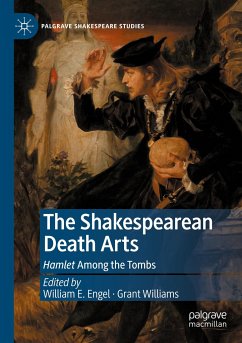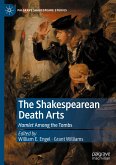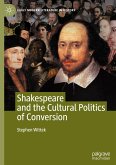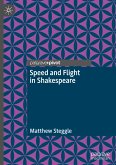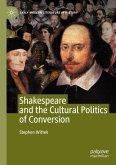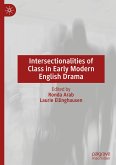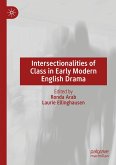This is the first book to view Shakespeare's plays from the prospect of the premodern death arts, not only the ars moriendi tradition but also the plurality of cultural expressions of memento mori, funeral rituals, commemorative activities, and rhetorical techniques and strategies fundamental to the performance of the work of dying, death, and the dead. The volume is divided into two sections: first, critically nuanced examinations of Shakespeare's corpus and then, second, of Hamlet exclusively as the ultimate proving ground of the death arts in practice. This book revitalizes discussion around key and enduring themes of mortality by reframing Shakespeare's plays within a newly conceptualized historical category that posits a cultural divide-at once epistemological and phenomenological-between premodernity and the Enlightenment.
"The well-conceived collection concludes with an afterword by Rori Loughnane that reflects on the form and nature of material and rhetorical memento mori, on the work of memory and authors' works as their legacy. ... The essays engage in suggestive and lucid ways with material practices, rhetorical figures, and historical tracts, sometimes forging new connections and almost always contributing to a deeper and broader understanding of the early modern death arts between Catholicism and the Reformation, medieval and modern constellations." (Anne Enderwitz, Anglistik: International Journal of English Studies, Vol. 34 (3), 2023)
"Shakespeare represents the art of death and his work has lived and lived long after his last breath. The rest and unrest, words and silence this collection so aptly addresses." (Jonathan Locke Hart, Renaissance and Reformation, Vol. 46 (1), 2023)
"Shakespeare represents the art of death and his work has lived and lived long after his last breath. The rest and unrest, words and silence this collection so aptly addresses." (Jonathan Locke Hart, Renaissance and Reformation, Vol. 46 (1), 2023)

